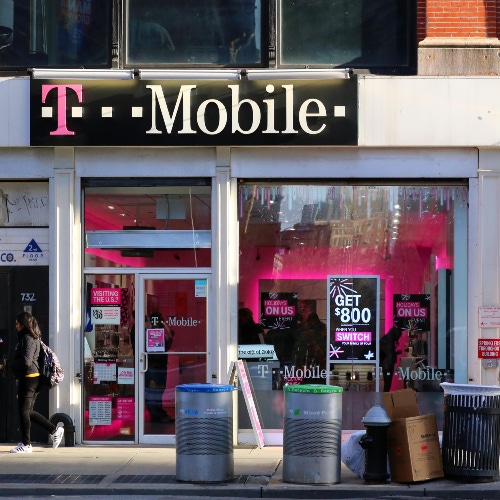The aerospace giant, which employs almost 150,000 people, is switching from Verizon to T-Mobile as an option for its mobile services.

Boeing, one of the biggest companies in the world, is replacing Verizon with T-Mobile as its secondary mobile service provider. The move underscores the rise of T-Mobile and its increasing focus on the enterprise market.
A source with knowledge of Boeing's decision confirmed the news to Light Reading. Representatives from T-Mobile, Boeing and Verizon either didn't respond to requests for comment or declined to comment.
Boeing continues to use AT&T as its primary mobile service provider, and a large portion of the company's employees use AT&T connections on their Boeing-supplied phones. However, under the new agreement between Boeing and T-Mobile, employees of the aerospace giant can select T-Mobile as their service provider.
Verizon is no longer supported as an option for Boeing employees with corporate-provided mobile service.
Figure 1:  (Source: Robert K. Chin - Storefronts/Alamy Stock Photo)
(Source: Robert K. Chin - Storefronts/Alamy Stock Photo)
Boeing employs more than 140,000 people globally and is ranked No. 68 on Fortune's list of the world's biggest companies. Winning its business is undoubtedly another feather in T-Mobile's cap.
The mobile operator has outlined its plans to double its share of the enterprise market, from around 10% today to 20% by 2025, following its $26 billion purchase of Sprint. T-Mobile has recently named several high-profile enterprise customer wins, such as Alaska Airlines, AutoZone and General Mills.
According to T-Mobile CEO Mike Sievert, the operator is working to expand its enterprise business beyond simply supplying smartphone connections to big companies. During a recent investor event, he said that T-Mobile occasionally wins enterprise business when big companies pit AT&T, Verizon and T-Mobile against each other in order to create competition and lower prices for devices. But he suggested that those wins then open the door for T-Mobile to prove its 5G prowess and potentially expand its relationship with the enterprise.
"We've got corner office relationships that are emerging, and they're very interested in whether or not 5G advanced network services could change their business and as a part of that, we're able to win market share in the core," Sievert explained.
Along those lines, T-Mobile has announced enterprise-specific business units focusing on technologies like edge computing and private networks.
Related posts:
— Mike Dano, Editorial Director, 5G & Mobile Strategies, Light Reading | @mikeddano
About the Author(s)
You May Also Like











